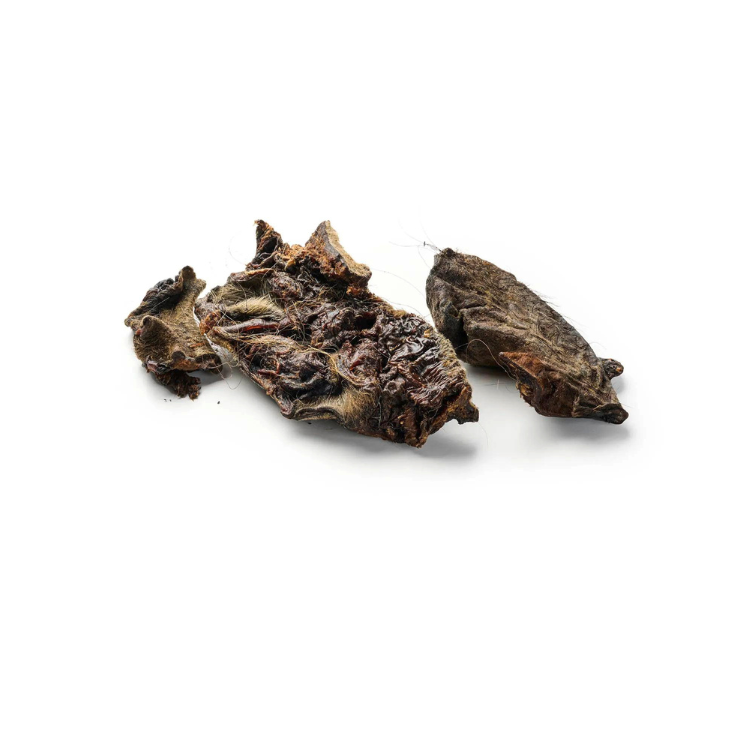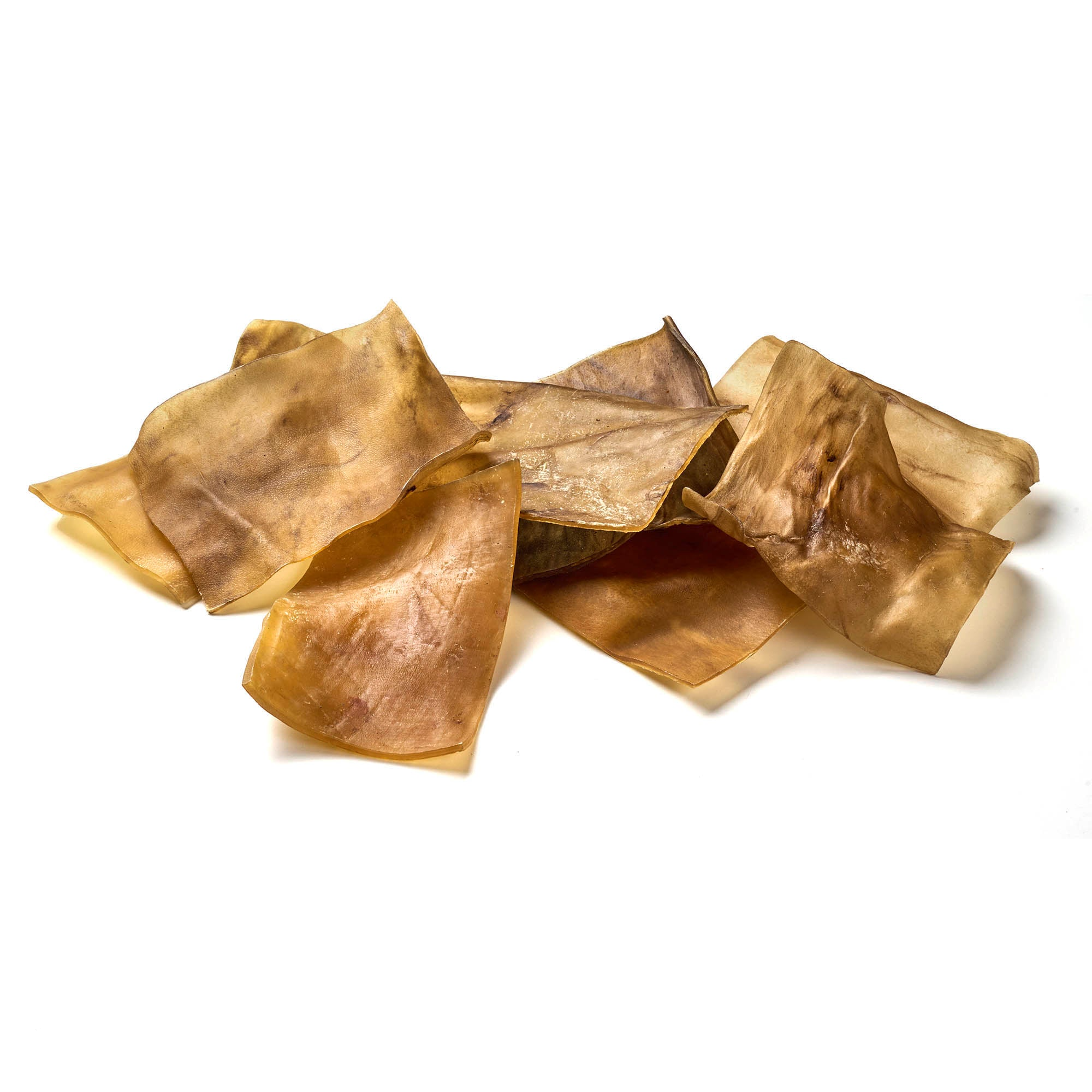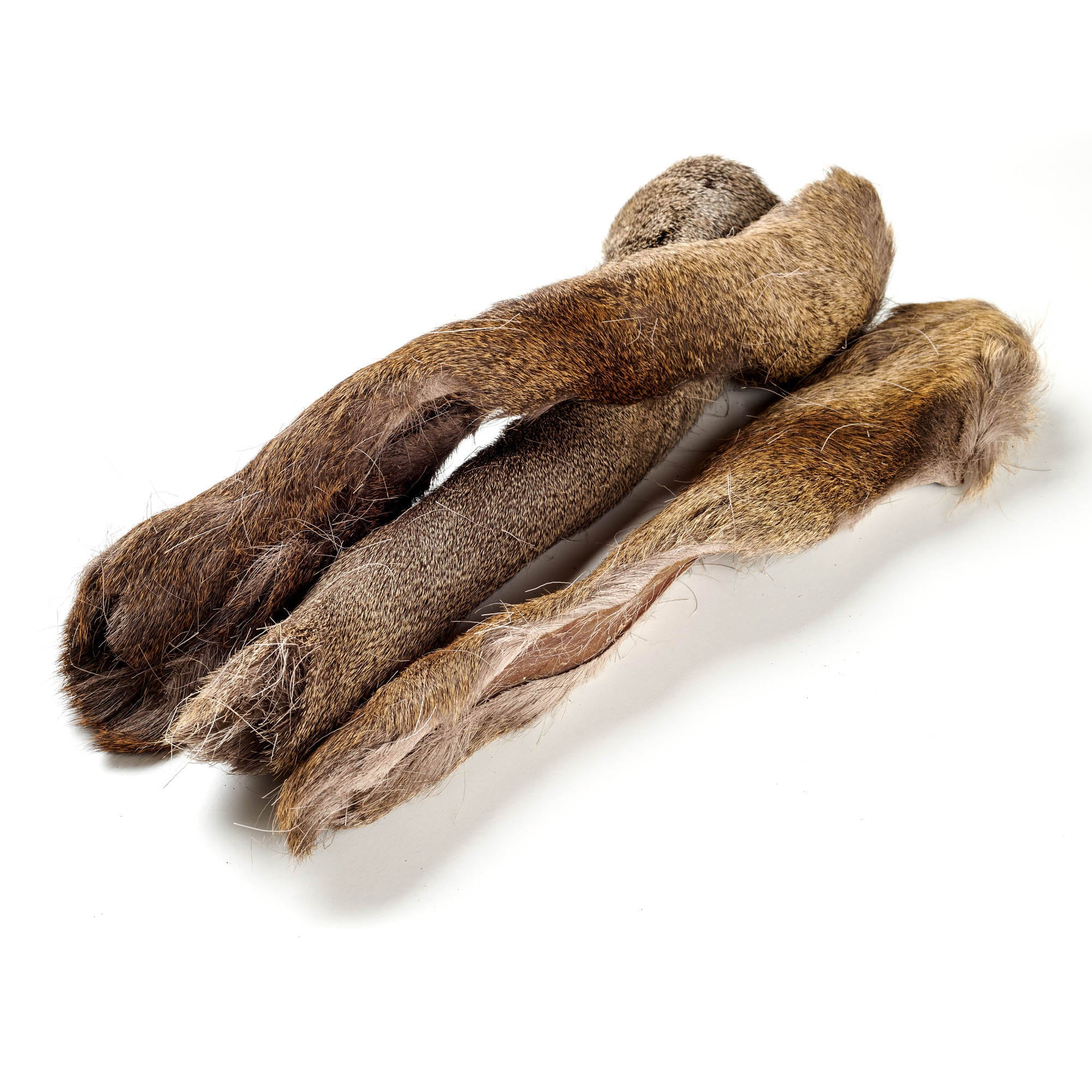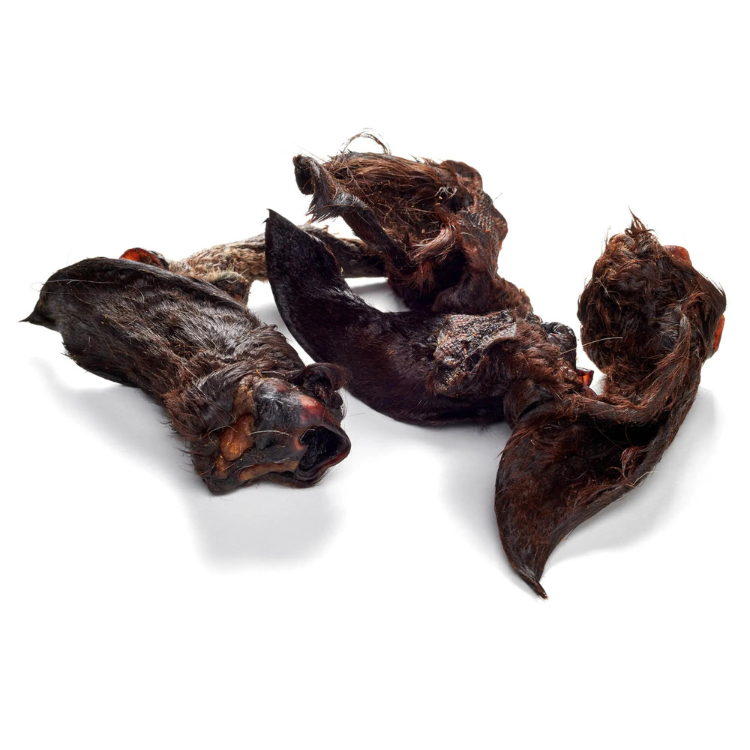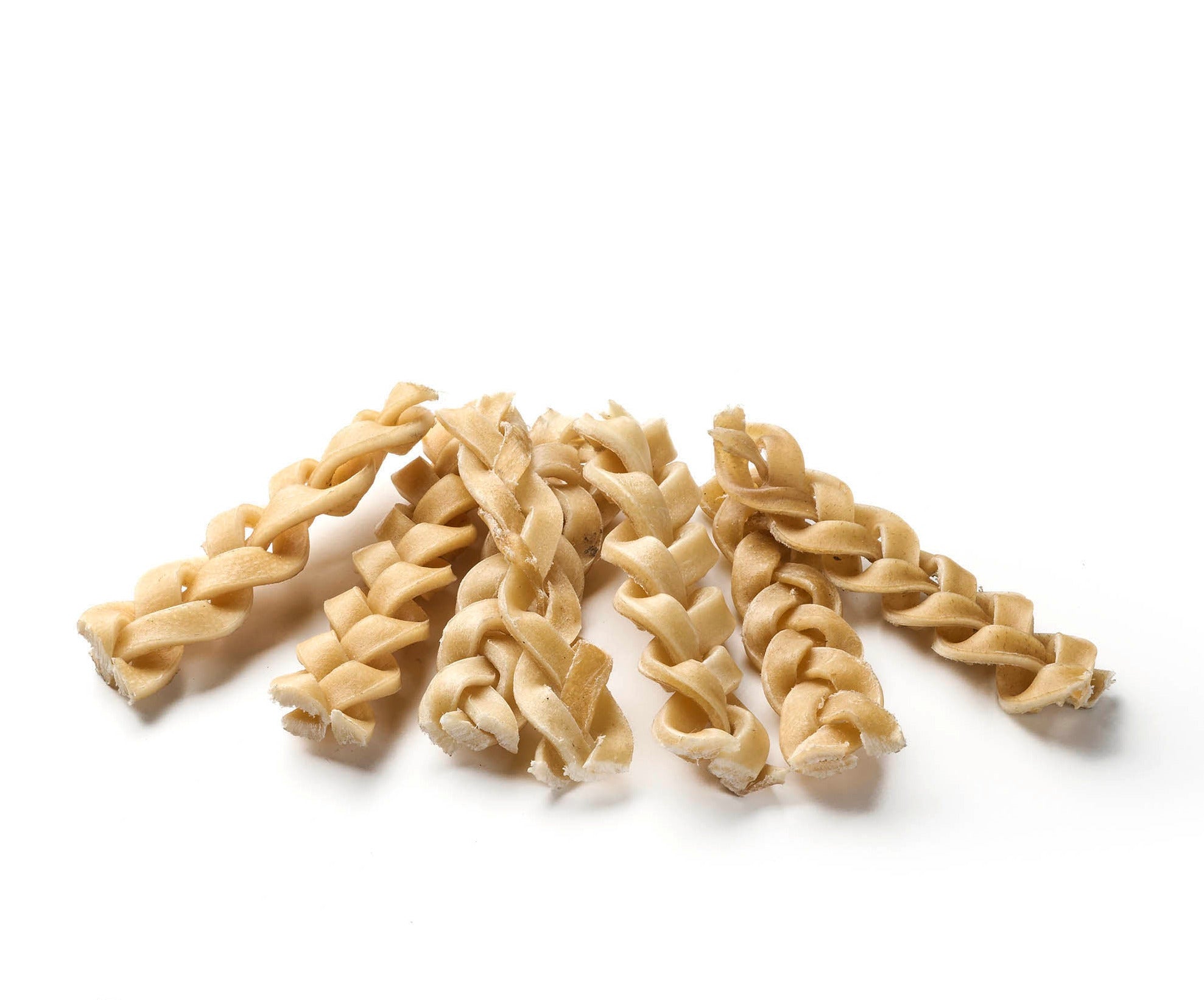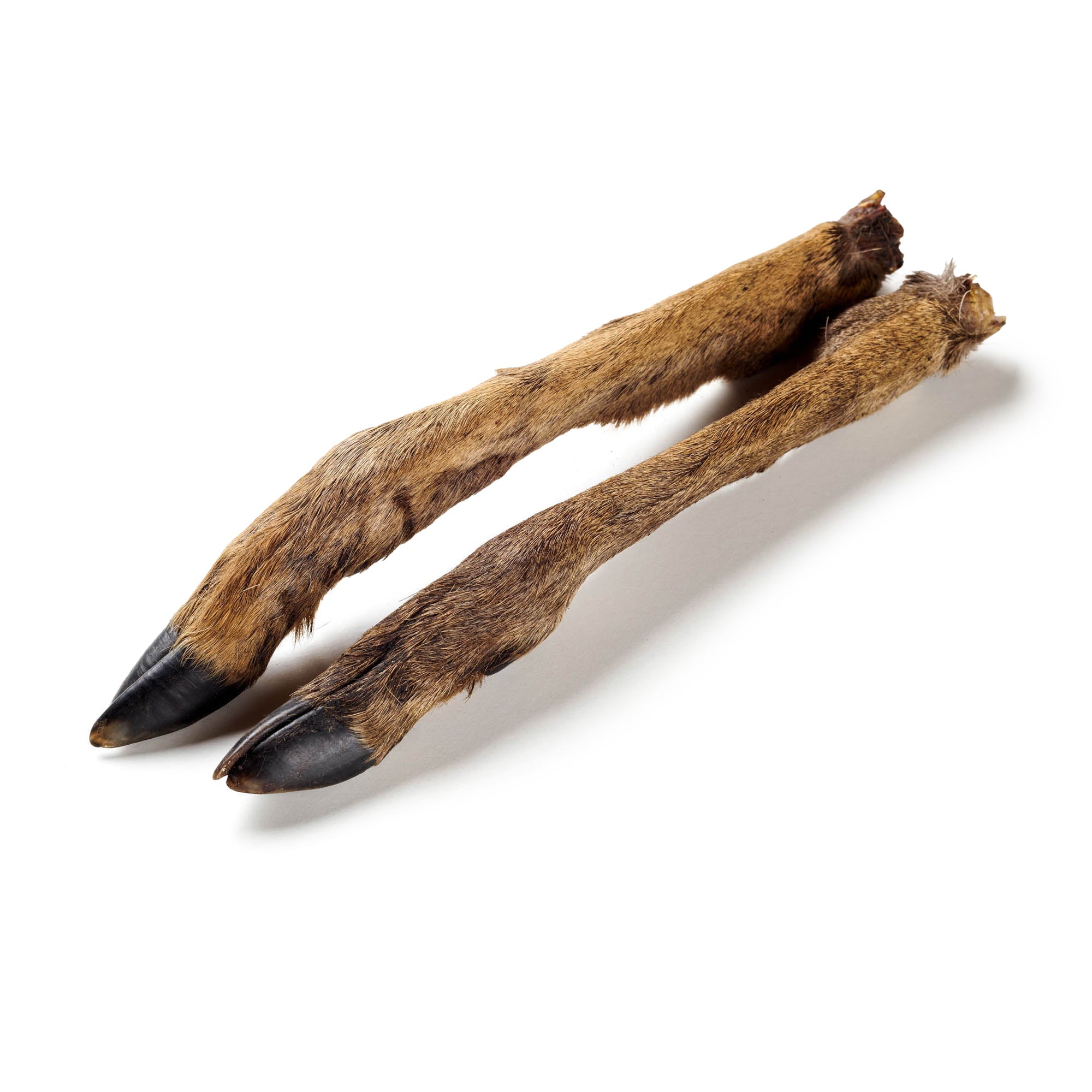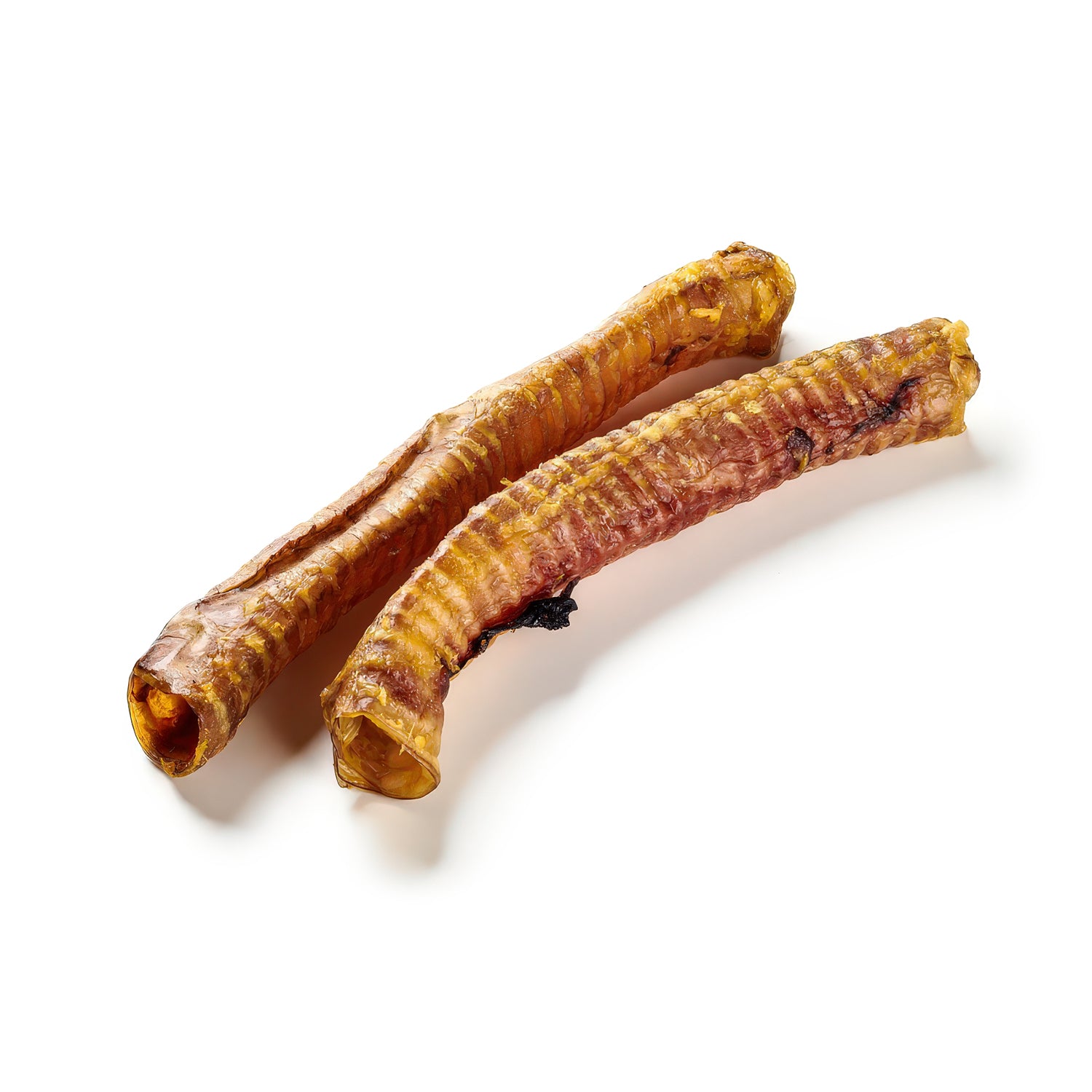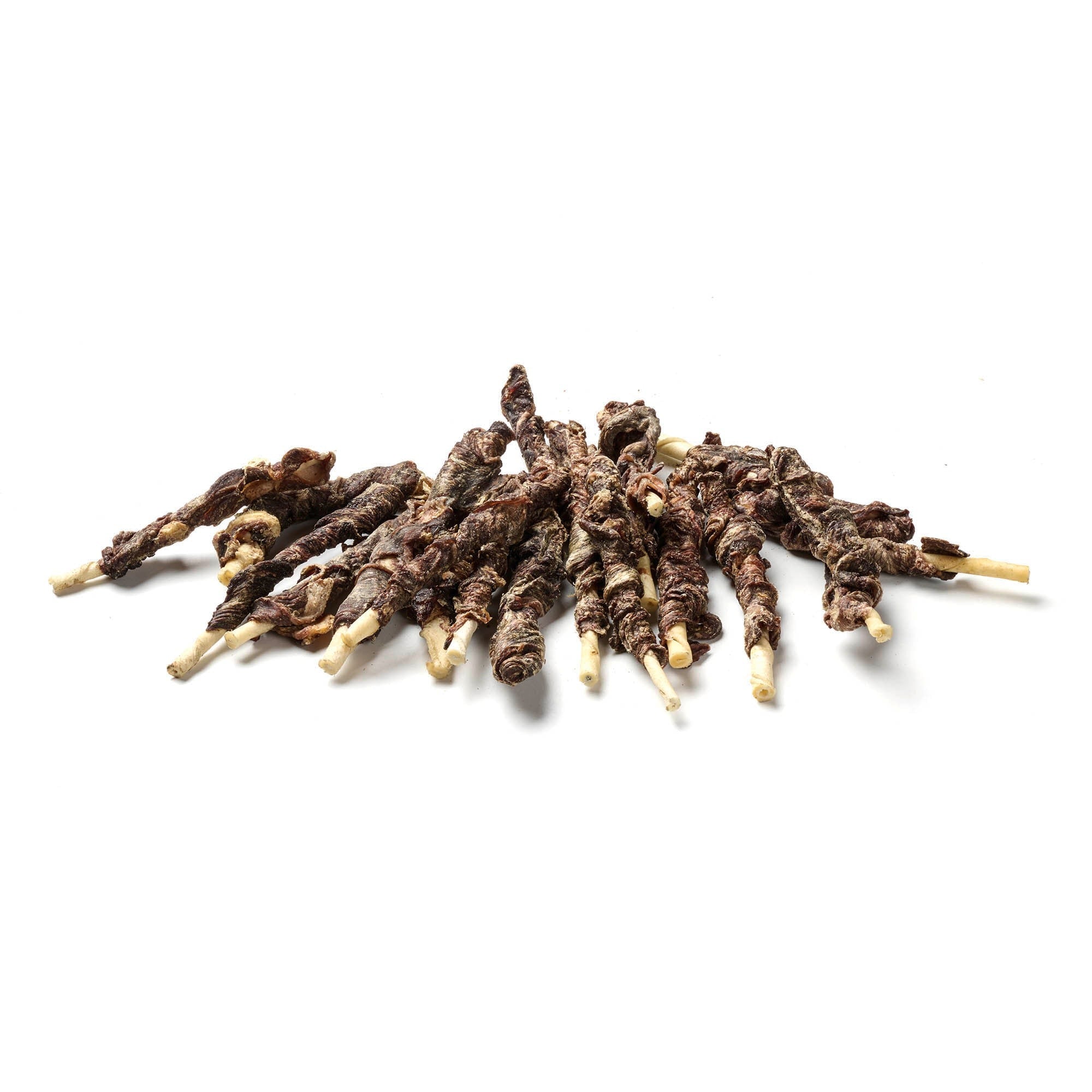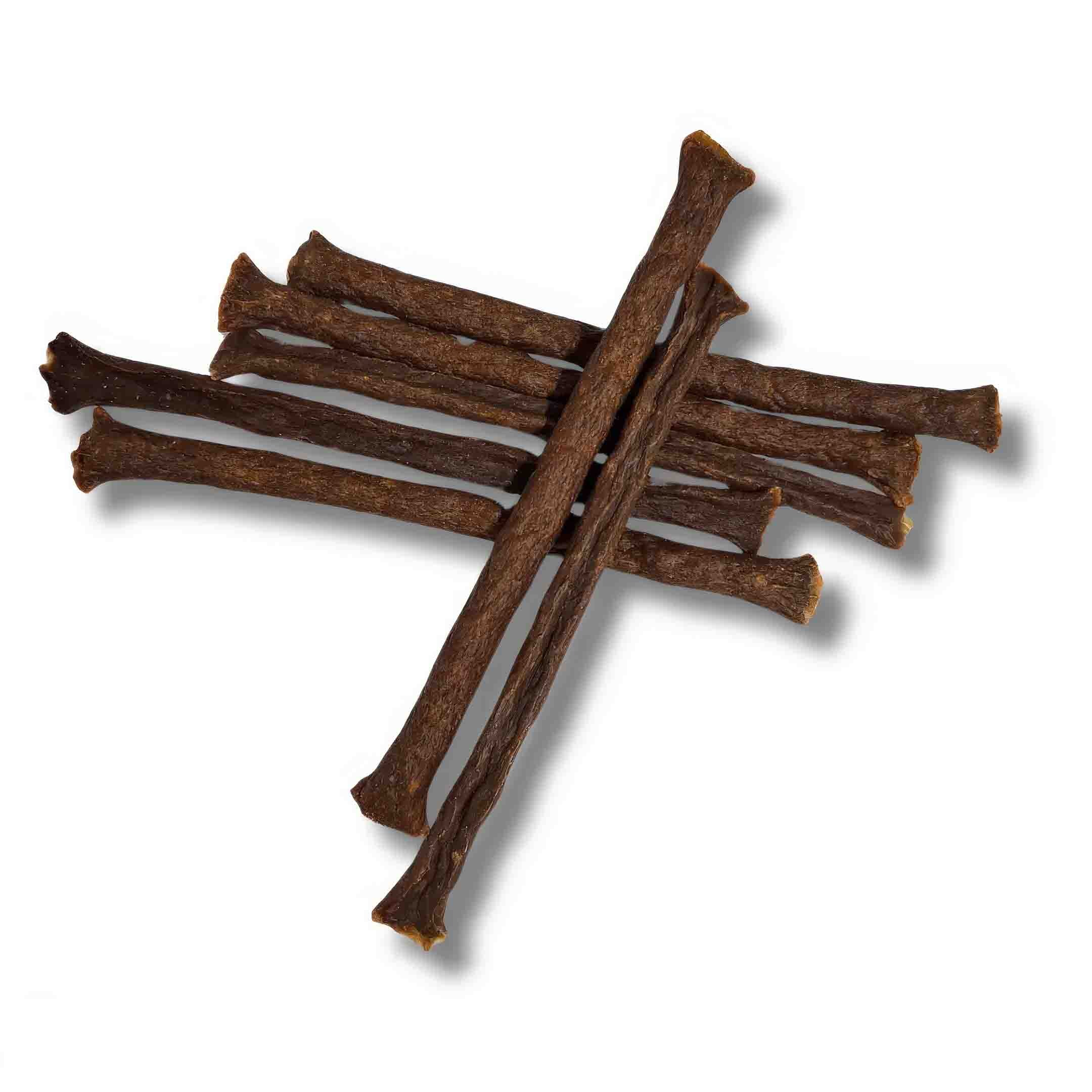
Pork for dogs
Share
Meat is essential for dogs' diets, but not all types of meat are equally healthy for them. Many dog owners are particularly unsure about pork. Find out here why raw pork is dangerous for dogs and why cooked pork is only tolerated to a limited extent.
Contents: Pork for dogs
Spoil your four-legged friend with our delicate chew items!
Raw pork for dogs
Many dog owners choose a BARF diet plan that provides raw meat for their four-legged friends. However, pork is not suitable for this type of feeding. Raw or undercooked pork can contain parasites that can be transmitted to the dog when consumed. An infection with trichinae can lead to symptoms such as nausea, vomiting, diarrhea, fever, pain and lethargic behavior. Therefore, you should definitely avoid pork when feeding BARF and choose better-tolerated types of meat instead.
High-quality dog snacks to pamper your dog, now available!
Aujeszky's virus, along with trichinae, can also be transmitted through raw pork, as pigs are natural hosts of the virus. This virus, also known as pseudorabies, causes symptoms similar to those of rabies in dogs, including nervous system damage, drowsiness, refusal to eat, restlessness, itching and excessive salivation. Although the virus is rare, in the worst cases it can lead to the death of the infected animal. Therefore, it is important to avoid feeding pork and choose safer sources of meat.
Boiled and fried pork
There is no risk of poisoning or infection with harmful parasites when eating cooked pork. However, you should only give your dog cooked pork in small quantities, as it is difficult to digest due to its fat content. Compared to other types of meat, pork is considered less healthy for dogs, as eating it can lead to digestive problems and inflammation of the pancreas.
Avoid fried pork when feeding your dog, as the fat used for frying makes the meat even more difficult to digest. Spices commonly used in human preparation, especially onions or garlic, are also indigestible for dogs and are sometimes poisonous. It is therefore advisable to only feed completely unseasoned meat without harmful additives.
Pork bones
Never give your dog leftover pork bones. Cooked bones are dry and tend to splinter. If the dog chews on these bones, there is a risk that it will choke on the sharp parts or injure its internal organs. Therefore, only use bones that are specifically designed for feeding.
Pork chews
Pork chews are very popular with many dogs and offer a fun way for dogs to satisfy their chewing needs. In our shop you will find a selection of high-quality and safe pork chews that have been specially made for dogs. Our products are free from harmful additives and preservatives.
Conclusion
A dog's diet is an important aspect of their health and wellbeing. When choosing meat for your dog, it is crucial to be aware of which types are safe and healthy. Pork poses risks to your dog's health due to potential parasites and the Aujeszky virus, especially when raw. Even cooked or roasted pork should only be given in small amounts as it is difficult to digest and can cause digestive discomfort. In addition, leftover pork bones should be avoided as they pose a risk of injury. Alternatively, high-quality pork chews are a safe way to provide your dog with an entertaining and chew-enhancing experience. When feeding your dog, it is always advisable to opt for high-quality and safe products and consult your veterinarian if in doubt.
Bring joy to your dog's day with our treats!

